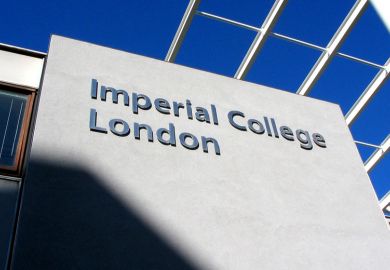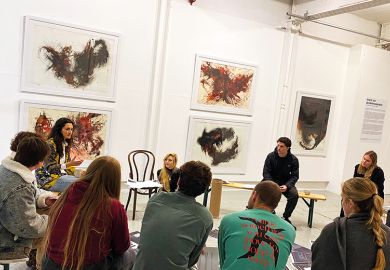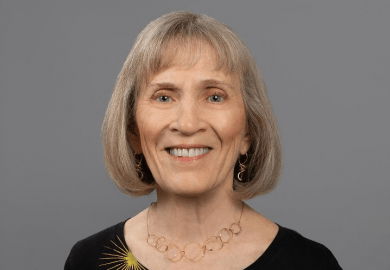The coronavirus crisis is likely to further politicise research funding, resulting in a “loss of top researchers and research groups”, a Swiss academic has warned.
Max Bergman, chair of social transitions research at the University of Basel, predicted that there will be “a lot more funding with an agenda [and] funding as opportunism” in response to the pandemic.
Speaking at the virtual Times Higher Education Southern Africa Impact Forum, held in partnership with the University of Pretoria, Professor Bergman said: “On the one hand it is very likely that many countries, not only on the African continent but beyond, are going to invest much more in public health and health research-related issues.
"But we are also very likely to see religious organisations, philanthropists and pro-government ideologies having an increasing role and voice in research agendas.”
He added that universities would have to wait and see to what extent “populist influences” or “seeming to do the right thing in front of citizens” will have on impact on which research is funded and not funded, but he predicted that “the natural sciences and to some extent the humanities will be affected by defunding”.
Professor Bergman said that universities will also “probably see a loss of top researchers and research groups, either through migration or through dissolution” as a result of the virus, while there will be “a lot more funding for applied research” and “a lot of debate on Eurocentric or Western-centric versus Afrocentric research”.
Speaking to THE later, Professor Bergman added that leading researchers and groups will be "picked up by other institutes", including other universities and research organisations, the private sector and governments.
“There will be a lot of band-aid approaches in the sense that political decision-makers will try to catch up with first public health, then maybe research in transmittable diseases, [and] then maybe fund research that is more government-friendly toward economic rebuilding,” he said, when asked about the potential threats to research during a panel on how Covid-19 will change the role and impact of research universities in Africa.
However, Tawana Kupe, vice-chancellor of the University of Pretoria, who also spoke on the panel, said that universities cannot be “insulated from politics” and they should “position themselves using knowledge to influence political agendas”.
“There will always be that jostling, that dynamic, between knowledge institutions and political institutions,” he said.
Aldo Stroebel, executive director of strategic partnerships at South Africa’s National Research Foundation (NRF) said that while national funding can be political, “science should be inherently international”.
He added that there has been “increasing concern among the scientific community that the research funding process has become too conservative”, and these worries have been “brought into stark reality during the current crisis”.
“We’ve seen that there have been a number of calls for a change in funding processes – and again the current crisis has brought this forward – to support high risk, high reward research,” he said.
Dr Stroebel added that the NRF and other research councils have focused their efforts on “rapid research efforts”, but admitted that this can “marginalise the broader research environment”.
He added that “especially in the African context there is a lack of preparedness” for crises like the coronavirus, because of “decades-long underinvestment both in terms of institutional reform and capacity”.
On the potential changes to teaching and learning in the wake of Covid-19, Professor Bergman said that there is likely to be an expansion of private, for-profit teaching universities that will compete against more conventional institutions on affordability and internationalisation. Meanwhile, he suggested that universities will be confronted with existential questions over the effectiveness of their educational models.
“I would be extremely surprised if people will not look at this one-year experiment and look at learning outcomes and wonder to what extent we will actually need hundreds if not thousands of parallel courses that are covering extremely similar material all over the world,” he said.
“This is not necessarily my perspective but I am absolutely sure I will be confronted with these kinds of positions in the next couple of years.”
ellie.bothwell@timeshighereducation.com




